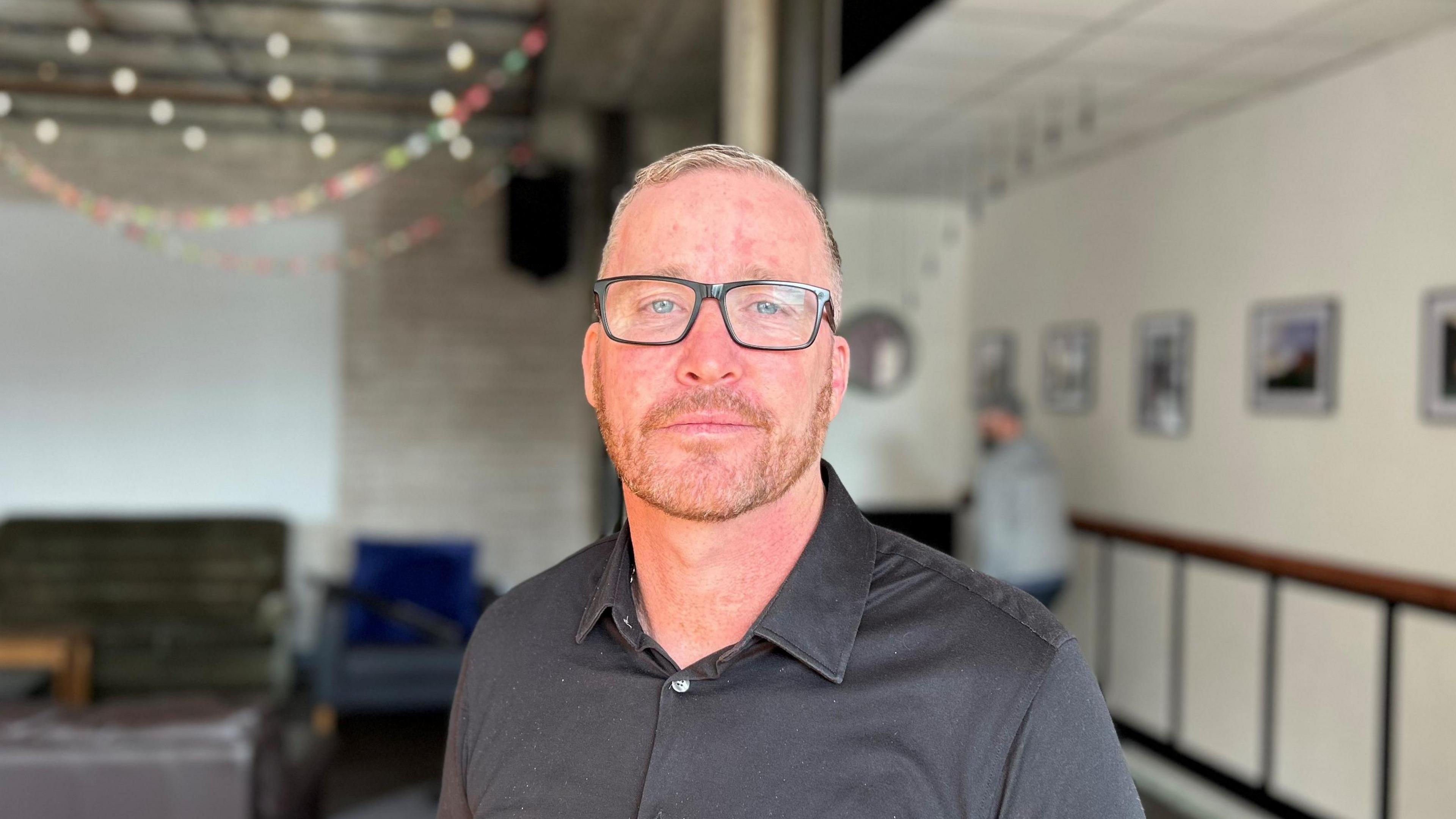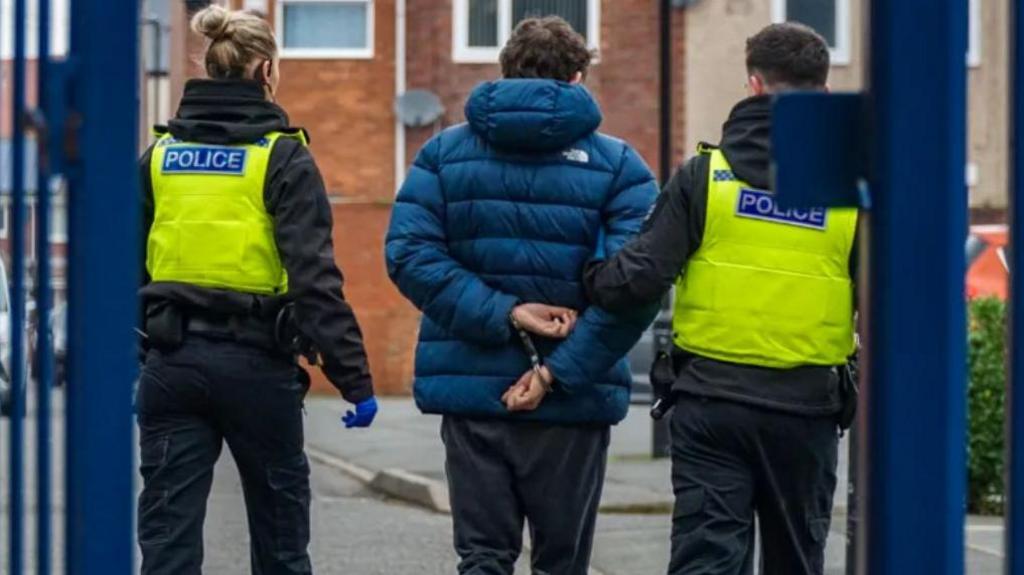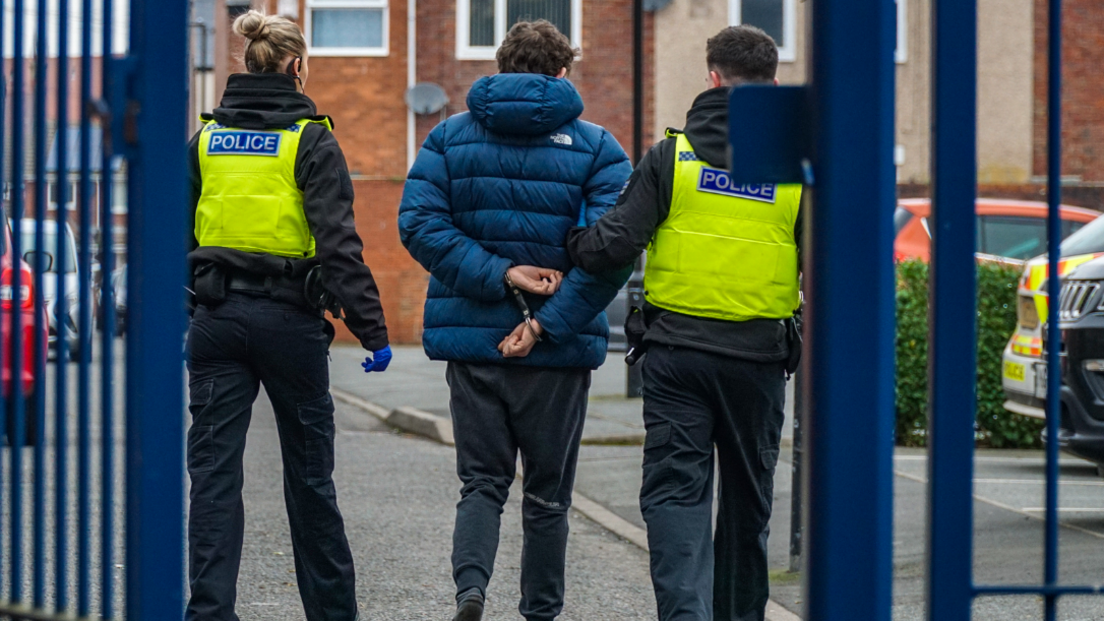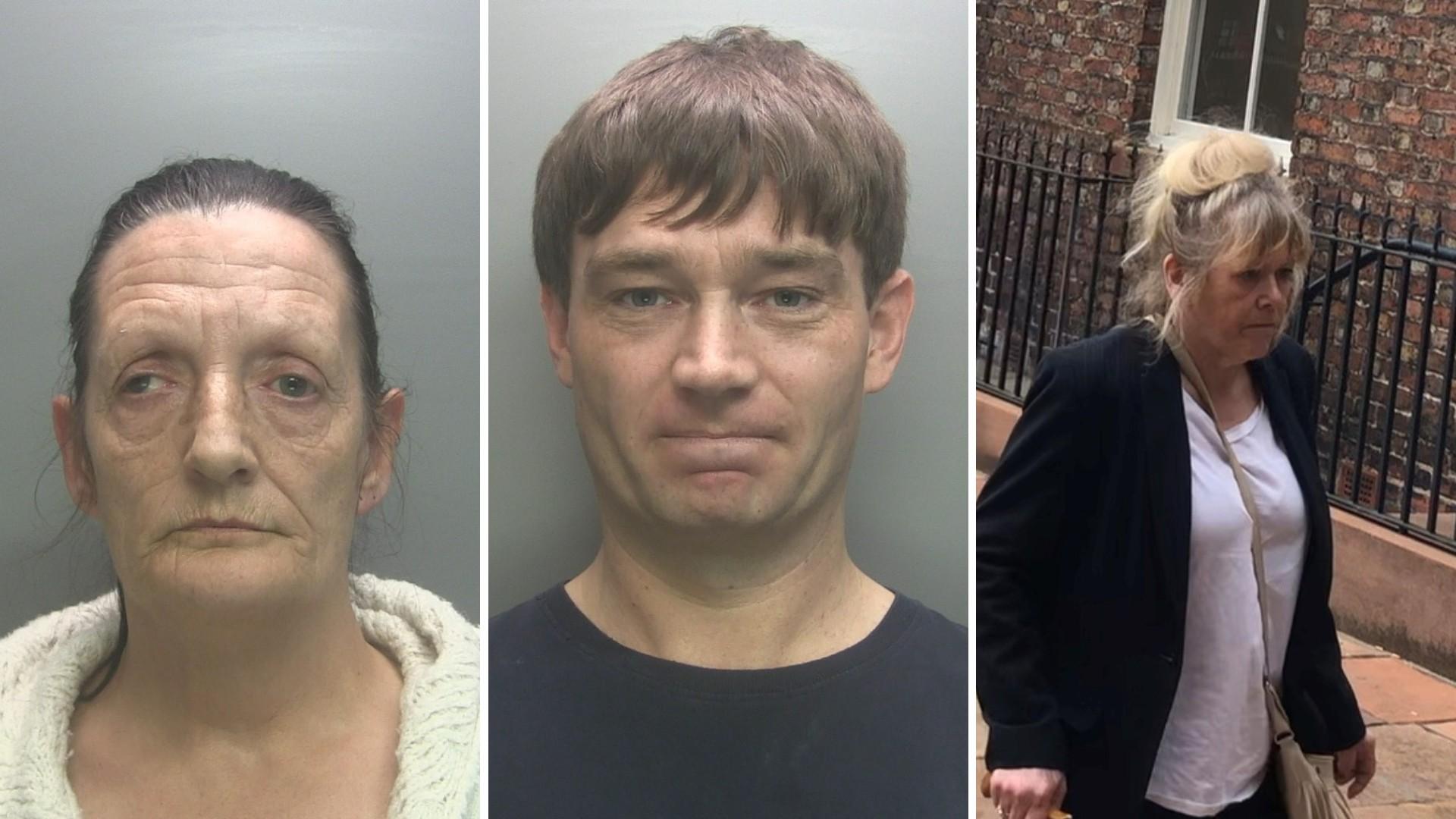Saved from a life as a county lines drug dealer

Former addict Dave Higham is now CEO of The Well Communities and supports others
- Published
County lines are large drug networks that cross borders across England. A project led by a former addict and drug dealer hopes to turn people away from the illegal trade and stop the wreckage being caused to communities.
When Liam - a name the BBC is using to protect his identity - was 18, he started taking drugs and driving for dealers.
He delivered packages for gangs between Cumbria and Manchester, while taking drugs behind the wheel.
Liam knew he was in too deep.
It took the intervention of a support group, led by a former addict, for him to get clean and leave a life of drugs and crime behind.
Another way
The Well Communities project is a partnership with Cumbria Constabulary.
Its aim is to reach people like Liam, who are involved in county lines drug trafficking, and show them that there is another way.
County lines is the term used to describe drug-dealing networks connecting urban and rural areas, using phone lines across the UK.
It often involves the exploitation of children and young people.
The project has seen success in Barrow-in-Furness, Cumbria, and is now expanding into Carlisle.

County lines often involves the exploitation of children and young people
Liam describes how one night he took a call from a stranger who told him to meet a man outside a local shop in Barrow.
He says he "didn’t know" the man who gave him instructions, or who the man was he was told to meet.
“He was the mule and I was the driver," Liam said.
“I didn’t even know what was in the package.
“I drove him to Manchester and took cocaine behind the wheel.
“It was a rush at the time. I felt like I was the one in charge.”
'Dangerous situations'
But Liam’s drug use was ruining his life, and his family's.
“I was meant to be the man at home because my dad isn’t in the picture," he said. "But I put my mum in dangerous situations."
He said dealers came to their door once and demanded to see him, as he owed money.
“My mum had a way with words and made them go away.”
Liam borrowed money off his mum over and over, and each time would promise it would be the last time.
His bedroom at home was his own private drug den, with blood from his nose smeared on the walls and bottles of urine scattered around.
Turning lives around
In 2022, Liam was approached by someone with their own lived experience of drug use, who worked for the County Lines Informed Cumbria project - known as 1CLIC.
1CLIC is a Cumbria Constabulary initiative and is in partnership with the Well Communities.
Liam attended rehab and has now been “clean” for more than a year.
The Well Communities is led by Dave Higham, who is originally from Liverpool, but moved to Cumbria in the early 2000s.
Mr Higham is a former addict and reformed criminal, who turned his life around after one last stay in prison for aggravated burglary when he was in his mid 30s.
Now aged 53, Mr Higham says he uses his own experiences to show people like Liam that they can have a “life beyond their wildest dreams”.
“I’m no one special, I just committed to the process," he said.
“Nine times out of 10, I’ve been worse than them."
Mr Higham said if he could turn his life around, "anyone" could.
Working together
The 1CLIC project identifies vulnerable people who are most at risk of being recruited by drug gangs and supports them to move away from potential criminal behaviour.
The funding for the expansion of the project will be provided through the government's Serious Violence Duty, external, which requires local authorities, integrated care boards, police, fire and rescue, and probation to work together address root causes of violence.
Since its introduction in February 2022, 1CLIC has conducted more than 2,300 vulnerability visits in the same way that Liam was approached.
In Barrow, active county lines have been reduced from six, with moments throughout the project when there were no active lines.
In Kendal, there was a three-month period with no active county lines, a reduction from the two lines that had been operating long-term in the town.
'Disrupting' county lines
Cumbria Constabulary's Det Sgt Kevin Milby, the 1CLIC project manager, said the partnership allowed them to help "the people most in need" and show them that "support" was there.
“By disrupting those involved in county lines, we are preventing illegal drugs getting into our communities, which in turn prevents the associated detrimental impact drug supply has," he said.
For Liam, now 14 months "clean", he is looking forward to a "beautiful" future, free of drugs and drug dealers.
Follow BBC North East on X (formerly Twitter), external, Facebook, external and Instagram, external. Send your story ideas to northeastandcumbria@bbc.co.uk.
Related topics
More stories from BBC North East and Cumbria
- Published15 March 2024

- Published17 August 2023
